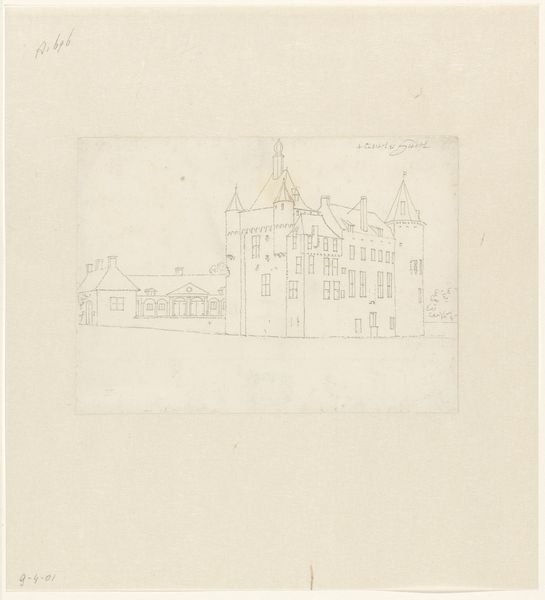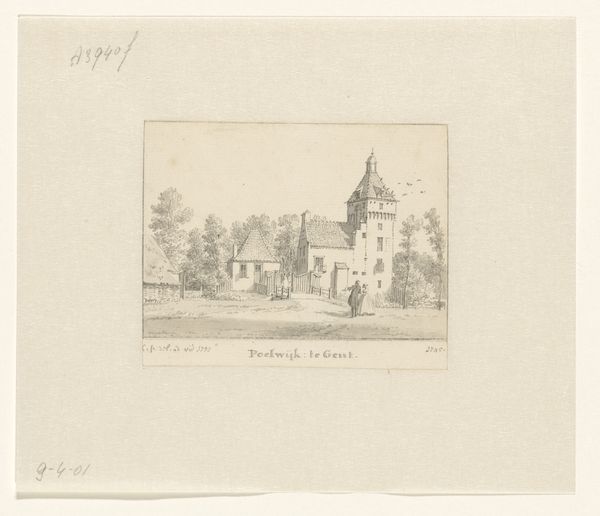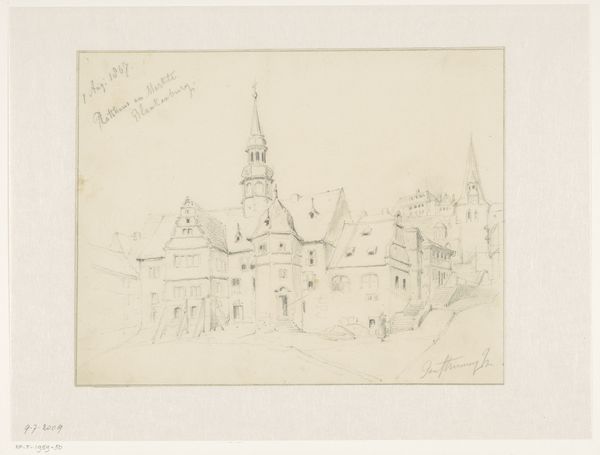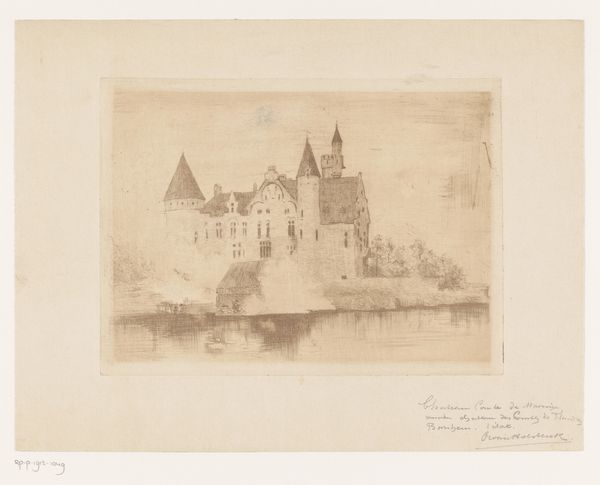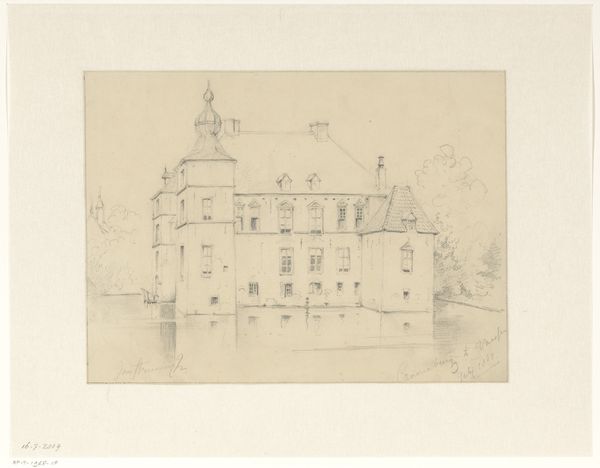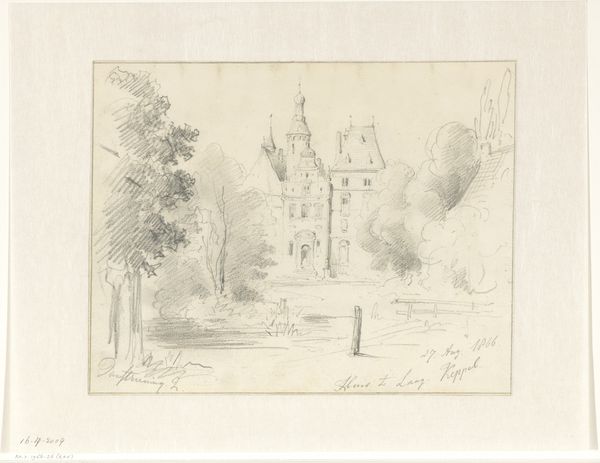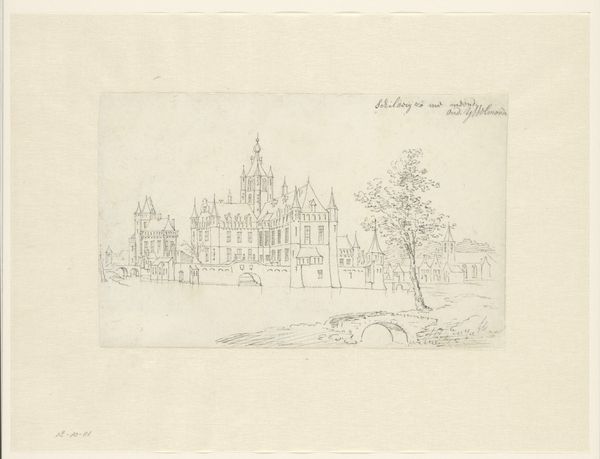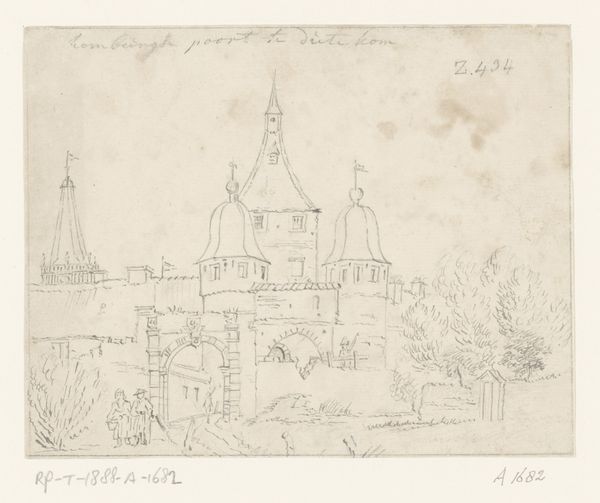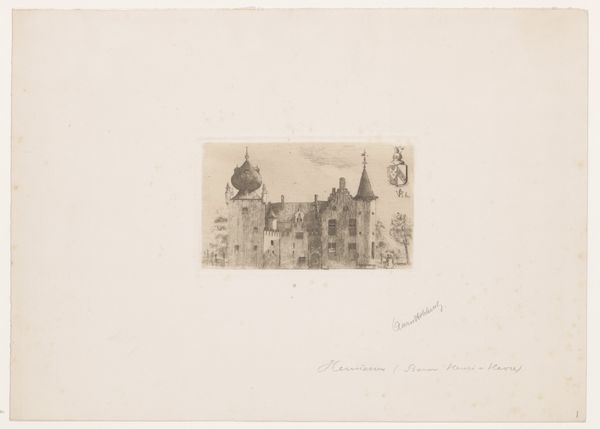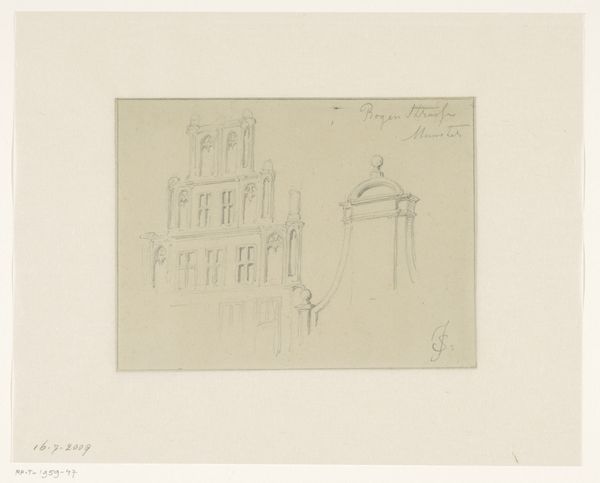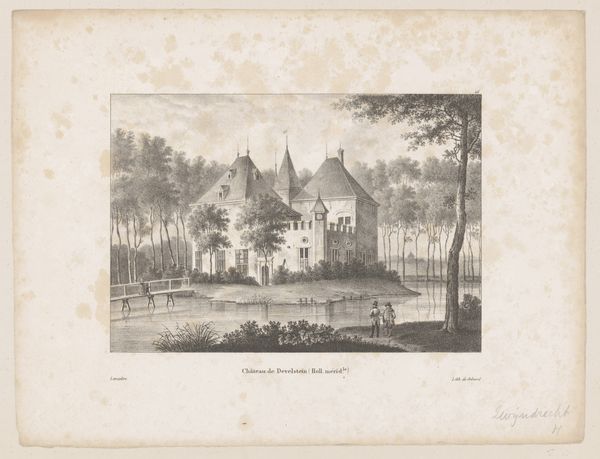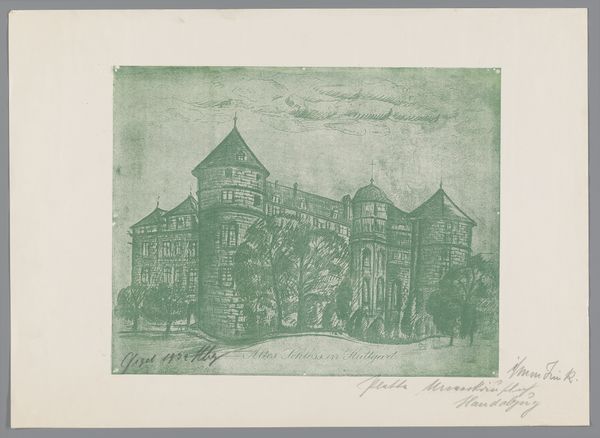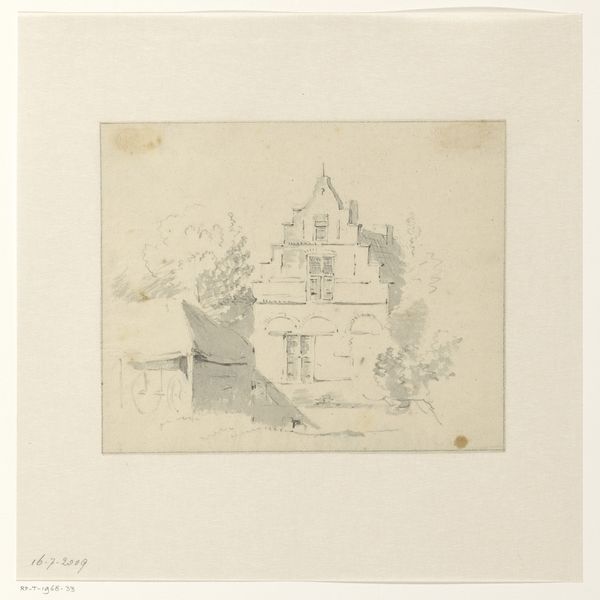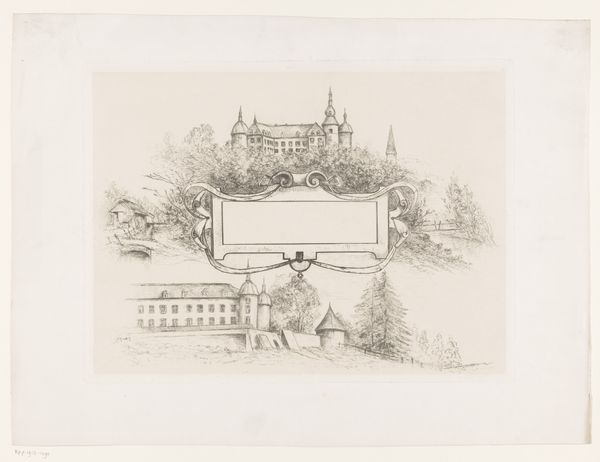
drawing, pencil
#
drawing
#
aged paper
#
light pencil work
#
ink paper printed
#
old engraving style
#
landscape
#
etching
#
personal sketchbook
#
ink drawing experimentation
#
pencil
#
sketchbook drawing
#
storyboard and sketchbook work
#
academic-art
#
sketchbook art
#
realism
Dimensions: height 158 mm, width 203 mm
Copyright: Rijks Museum: Open Domain
Curator: We're looking at Jan Striening's "Kasteel Twickel," a pencil and ink drawing possibly from 1859. It's quite delicate, wouldn't you agree? Editor: Yes, there's a quietness to it. Almost like a memory fading at the edges. What historical forces might have shaped the artist’s representation of this castle? Curator: Consider the rise of Romanticism in the 19th century. There was this fascination with history and the grandeur of the past, often tied to ideas of national identity. How do you think this drawing reflects that cultural context? Editor: It feels idealized, presenting a stately image, but without showing any signs of life, perhaps suggesting the aristocracy was disconnected from contemporary society? Curator: Precisely! Castles were often viewed as symbols of power, but by the mid-19th century, that power was shifting. Also think about the purpose of an image like this. Was it intended for public display or a more private audience? Editor: Based on its sketch-like quality and "aged paper" tag, perhaps this drawing was personal—a preparatory work or simply for personal enjoyment? If public art serves to affirm institutional power, how can something like a private sketchbook page be a form of resistance? Curator: That's an interesting thought. By not participating in the grand narratives promoted by the art establishment, it creates its own quiet narrative. This work may subtly critique that established public perception. The way he captures the building with just pencil—without idealizing—reflects honesty perhaps. Editor: So it could be argued that in its modesty, the work is more subversive. I hadn't thought of it that way. Thanks! Curator: It's a pleasure. Sometimes the most profound statements are made in the quietest of voices.
Comments
No comments
Be the first to comment and join the conversation on the ultimate creative platform.
